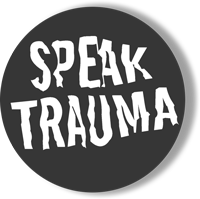Virtual Language Exchange
About the Stevens Initiative
The Stevens Initiative is an international virtual exchange leader, bringing young people from diverse places to collaborate and connect through everyday technology. Created in 2015 as a lasting tribute to Ambassador J. Christopher Stevens, the Initiative invests in virtual exchange programs between the U.S., the Middle East, and North Africa; shares research, resources, and promising practices to improve impact; and advocates for broader adoption.
In the Mass Communication Department of the American University of Sharjah Associate Professor Susan Smith PI will conduct the US Indigenous-UAE Virtual Language Exchange (VLE). The exchange will provide participants with a unique cross-cultural experience by examining diverse worldviews, languages, and cultures while critically thinking about media representations that shape their world knowledge. A particular focus for this program is a sociolinguistic inquiry into language, and culture in historical and geographical contexts, along with semiotic applications and interpretations. The VLE builds significant relationships with diverse student participants through collaborations creating visual projects with open dialogues that strengthen multi-cultural understandings and develops connections that honor and respect human diversity.
Between the American University of Sharjah (AUS), Sharjah, Alaska, and Oklahoma, there are many diverse languages spoken by the students, including Yuchi, Cherokee, Muscogee, Yup’ik, Aleut, Dena’ina, Inupiaq, as well as many dialects of Arabic, Hindi, Urdu, Punjabi, and English.
The Stevens Initiative Partners: American University of Sharjah
Participants in the VLE Exchange at AUS
The Virtual Language Exchange (VLE) will run from August 30th to May 10th. The participating institutions include the American University of Sharjah (AUS), founded in 1997 by His Highness Sheikh Dr. Sultan Bin Muhammad Al Qasimi, Member of the Supreme Council of the United Arab Emirates and Ruler of Sharjah, the Yuchi Language Project of Sapulpa, Oklahoma, The Cherokee Immersion School of Park Hill, Oklahoma, and Alaska language programs; Lake Iliamna dialects of Yup’ik and Dena’ina.
VLE Participants Testimonials
Padlet Coursework
Video Projects
These are one-minute movies created by the VLE participants. They were asked to produce a short film of the traditions and rituals they share with their friends or family.
The Virtual Language Exchange (VLE) will run from August 30th to May 10th. The participating institutions include the American University of Sharjah (AUS), founded in 1997 by His Highness Sheikh Dr. Sultan Bin Muhammad Al Qasimi, Member of the Supreme Council of the United Arab Emirates and Ruler of Sharjah, the Yuchi Language Project of Sapulpa, Oklahoma, The Cherokee Immersion School of Park Hill, Oklahoma, and Alaska language programs; Lake Iliamna dialects of Yup’ik and Dena’ina.
AUS Facilitator
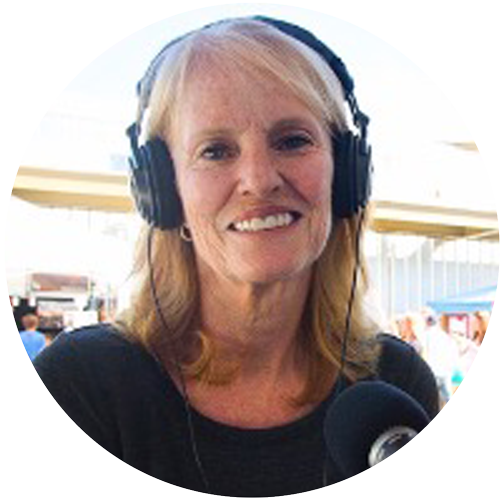
Susan Smith, PI, American University of Sharjah, Facilitator
Susan Smith earned her MAVA in Visual Anthropology from the University of Southern California, Los Angeles, and the University of Tulsa, Oklahoma. Her areas of research and teaching interests are working with Indigenous cultures undergoing change, gender challenges, and examining cultural identity among expatriates.
Ms. Smith has been an Associate Professor at the American University of Sharjah (AUS) for over 17 years and is the PI for a Stevens funded Virtual Language Exchange (VLE) program. The VLE involves nearly 300 participants from the United Arab Emirates and the United States.
Ms. Smith has worked as an independent documentary maker for more than 30 years producing television programs for PBS and advocacy videos for non-profit organizations and private agencies around the globe. Smith has worked extensively with Indigenous groups worldwide, including the Yuchi in Oklahoma, the Maasai and Mijikenda in Kenya, and the Pertame in Australia. Ms. Smith also offers documentary training courses through the Speak Trauma Foundation (www.speaktrauma.org).
The Yuchi Language Project
The Yuchi Language Project is a small organization that has been doing community language work for over a quarter of a century, establishing itself as a formal non-profit organization in 2011. The Yuchi Language Project is a language and cultural revitalization model program designed as a living language habitat to produce a new generation of Yuchi speakers.
Yuchi people were forced from eastern homelands in what became Georgia and Alabama to Oklahoma on the so-called Trail of Tears. Despite these hardships and the lack of a land base, the Yuchi community continues to maintain its distinctive identity, and cultural and social institutions, including ceremonies, medicinal knowledge, and unwritten histories, through the Yuchi language. Through the work of the Yuchi Language Project, young parents are now once again performing the extraordinary task of raising children in Yuchi as a first language. As our founding Elder, Mose Cahwee, often said, yUdjEha nAnô, sô KAnAnô (we Yuchi people, we are still here).
The Yuchi Language Project works with Yuchi youth and other Indigenous youth from other Native language programs in Oklahoma and Alaska. The Yuchi language is a stand-alone language isolate and is one of the world’s most ancient and richest languages, carrying eons of tradition, history, and a unique perspective.
They have conducted language training workshops that have included international language advocates from the Maasai language in Africa and the Pertame language in Australia. The Yuchi Language Project was proud to be involved with the development of the recent November 2021 events celebrating the United Nations International Decade of Indigenous Languages at the invitation of the U.S. State Department during Expo 2020 in Dubai at the USA Pavilion and the Te Aratini Indigenous Festival led by the New Zealand delegation.
Yuchi Children Playing with Blow Darts
The Yuchi Language Project
Yuchi Facilitators
Richard A. Grounds, Ph.D., is an enrolled member of the Muscogee Nation of Oklahoma of Yuchi and Seminole heritage. He is Executive Director of the Yuchi Language Project based in Sapulpa, Oklahoma, working with Yuchi Elders in creating new fluent speakers using immersion language methods. Under his leadership, the Yuchi Language Project was recognized as the Outstanding Host for 2017 by the Tula Global Alliance for working with numerous international visitors over the years sponsored by the U.S. State Department, including Uighurs, Taiwanese, Mongolians, Brazilians, Indonesians, among innumerable others. After completing his Ph.D. in the History of Religions at Princeton Theological Seminary, he taught at St. Olaf College and in the Anthropology Department at the University of Tulsa. He is currently the chair of the Global Indigenous Languages Caucus and served as the Expert for the North American Region at the Expert Meeting on Indigenous Languages held by the U.N. Permanent Forum on Indigenous Issues in 2016.
Dr. Grounds received the Humanities in Education Award from the Oklahoma Humanities Council for 2013 and is active in Picket Chapel, the local Yuchi Methodist church, and Polecat Yuchi Ceremonial Ground.
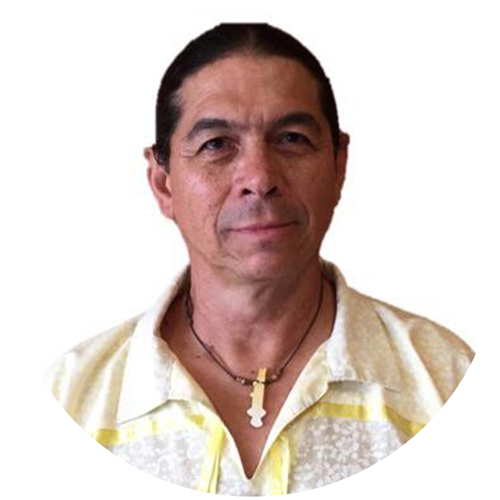
Dr. Richard Grounds, Yuchi Facilitator
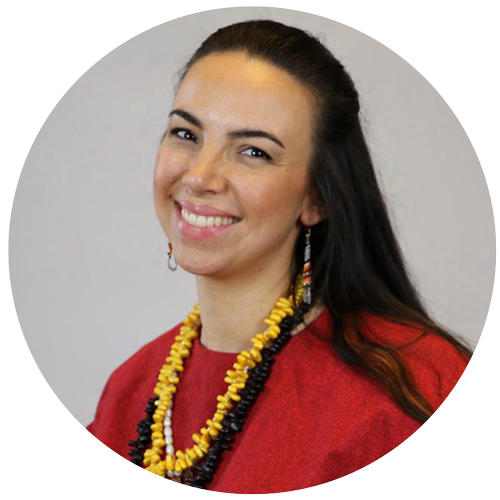
Halay Turning Heart, Yuchi Facilitator
Ms Halay Turning Heart is the 2021 NDN Changemaker Fellow representing the Great Plains region in the USA. Ms. Turning Heart holds a Linguistics degree from Dartmouth College and attended the University of Auckland-New Zealand and Charles University in Prague. She has served her Yuchi people for over ten years as a language educator and established a successful language immersion school in 2018. She is a fluent speaker, working with elders and raising her three young children as the first Yuchi speaker in four generations.
Ms. Turning Heart has been a NABE Bilingual Education Ambassador since 2019 and a keynote speaker at national convenings such as the Stabilizing Indigenous Languages Symposium. She was a delegate to the United Nations Permanent Forum on Indigenous Issues and the World Council of Churches General Assembly in Brazil. She has received many awards and fellowships, such as the Richard D. Lombard Fellowship, Dartmouth Fellowship, Native Knowledge Award, and Citizen of the Year. Her life’s work has taken her to over 20 countries to mentor language revitalization programs and promote the reclamation of Indigenous lifeways.
The Cherokee Immersion School
The Cherokee Immersion School (ᏣᎳᎩ ᏧᎾᏕᎶᏆᏍᏗ, Tsalagi Tsunadeloquasdi) is a Cherokee language immersion school. The Cherokee Nation founded it in 2001 to preserve the heavily endangered Cherokee language. Students must be members of a federally recognized tribe, and an application process is used as class size is limited.
“First and foremost, we work to bring a Cherokee-centric focus to the Cherokee immersion school. This goes beyond language into something else, something deeper. The idea for the school has always been to develop our children into Cherokees. We want them to embody our behaviors, our ways of thinking and doing, and to do so with our language as the foundation,” Mr. Kirk shared.
First Lady Speaks At Cherokee Immersion School About Importance Of Preserving Language
Cherokee Facilitator
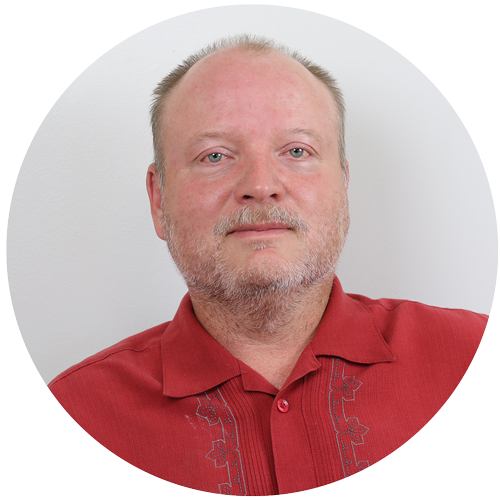
Wyman Kirk, Cherokee Facilitator
Mr. Wyman Kirk, a Cherokee Nation citizen, received his Bachelor of Arts in English from Northeastern State University, Tahlequah, Oklahoma, and then his Master of Arts in Cultural Anthropology from Indiana University, Bloomington, Indiana. Mr. Kirk is the principal of The Cherokee Immersion School (ᏣᎳᎩ ᏧᎾᏕᎶᏆᏍᏗ, Tsalagi Tsunadeloquasdi) in Park Hill, Oklahoma.
Mr. Kirk has over 25 years of experience in Cherokee history and language curriculum development as a coordinator for strategic intelligence, assistant professor, lecturer, cultural specialist, and independent contractor. He has also worked as an instructor for Cherokee language courses in the Department of Cherokee and Indigenous Studies at NSU.
Alaska Yup’ik Facilitators
As President of Igiugig Village, AlexAnna Salmon is the top executive of one of more than 500 federally-recognized tribal governments in the US. She is of Yup’ik and Aleut descent and an influential Indigenous leader, leading to the revitalization of two endangered Alaska Native languages: Lake Iliamna dialects of Yup’ik and Dena’ina. In 2008 Salmon graduated from Dartmouth College with a dual Bachelor of Arts degree in Native American Studies and Anthropology. She received her Master’s Degree in Rural Development from the University of Alaska Fairbanks in 2021.
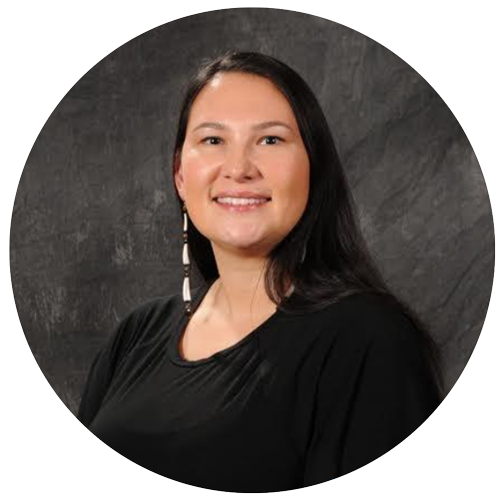
AlexAnna Salmon, Alaska
Story of Igiugig: Native Sovereignty in Alaska
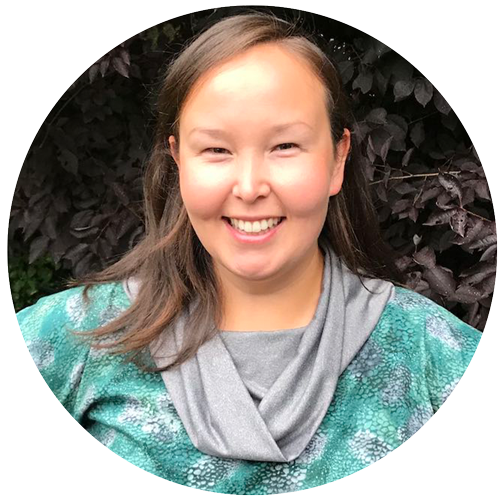
Atkiq Michelle Ilutsik-Snyder
The Career Counselor for the Alaska Native Education Project is Atkiq Michelle Ilutsik-Snyder. She grew up in Alaqnaqiq and Curyung (Aleknagik and Dillingham) and is currently living in Dgheyaytnu (Anchorage). A life-long subsistence and commercial fisherman, she has spent most of her summers harvesting fish in Iquk (Ekuk). She received her Bachelor of Arts from Brown University and her Master of Arts in Teaching from the University of Alaska Southeast. A former secondary educator, she is passionate about the importance of cultural teachings and language revitalization.
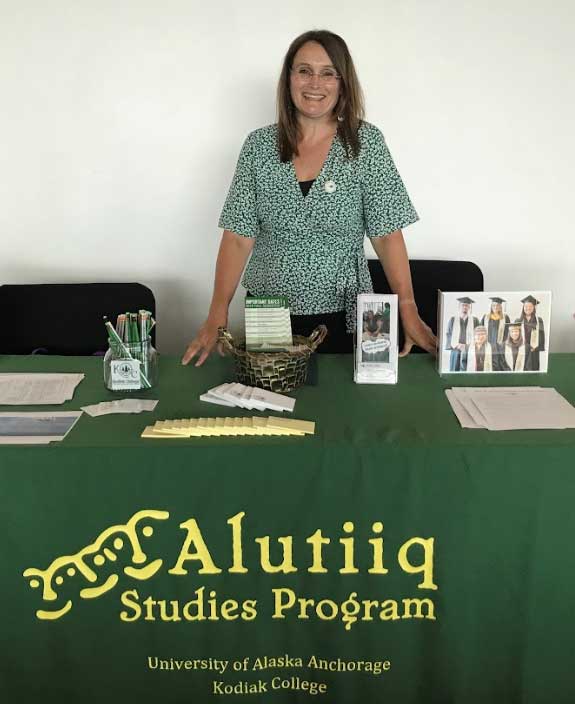
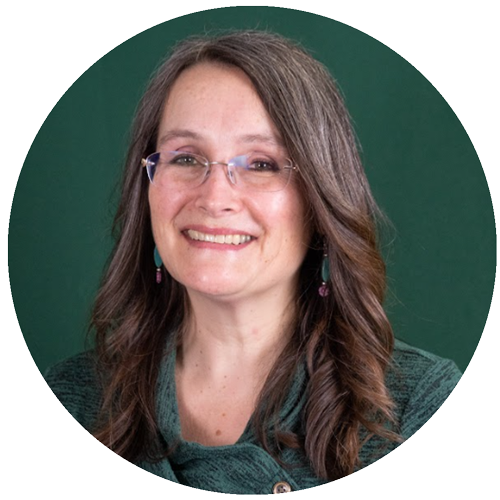
Libby P. Eufemio,
Alutiiq Language
Libby Pontti Eufemio is an Assistant Professor of Alaska Native Studies and director of the Alutiiq Studies Program at Kodiak College, a branch of the University of Alaska Anchorage. At Kodiak College, she teaches classes in Anthropology and Alaska Native Studies while also serving as a Student Coach, Chair of the Diversity Committee, and advisor to the Cama’i Club; a student organization focused on language, culture, and service. A lifelong Alaskan, Libby earned her undergraduate and Master’s degrees in Anthropology from the University of Alaska-Fairbanks, focusing on archaeology and the earliest peoples of Alaska. She is currently working on her Ph.D. in Indigenous Studies through UAF, with research interests in food sovereignty, food security, and cultural revitalization through opportunities in higher education. She is also a beginning Alutiiq language learner.
Meet our US Facilitators for the Virtual Language Exchange
Helping Hands
Shanzeh Shafiq, Research Associate
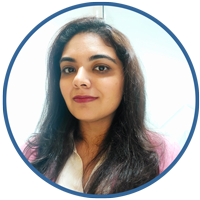
Ms Shafiq’s journey began at the American University of Sharjah as a Mass Communication major, and now she will contribute to our department as a Research Assistant.
Ms Shafiq has mastered the skills of video editing, writing, project management, and customer service, and will passionately overlook the Virtual Language Exchange project and help connect students and facilitators through.
Jiles Turning Heart, United States Photographer
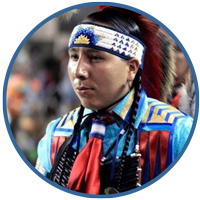
Hau, anpetu wasté (hello and good day). Mr. Turning Heart is a Hunkpapa- Mnicoujou-Oglala member of the Lakota Nation, born and raised on the Cheyenne River Sioux Tribe reservation in one of the poorest counties in the United States. Mr. Turning Heart inherited the Mitakuye Oyasin (all my relations) worldview through his culture. This Lakota philosophy respects the connection of all beings working together, and it’s a perspective Mr. Turning Heart incorporates into his work with Indigenous language revitalization.
After earning a B.A. in Film and Media Studies from Dartmouth College, Mr. Turning Heart created language and culture films in Alaska (USA), Oklahoma (USA), and Aotearoa (New Zealand). Mr. Turning Heart also has extensive experience documenting Indigenous speakers and endangered languages. Mr. Turning Heart is currently learning both his language and raising our three children, Chaské (age 6) and Nahalay (age 4), and sEOdalA (age 1) as fluent speakers of our Indigenous languages. He is an advocate for Indigenous youth in language and cultural revitalization to create new speakers among the youngest generation.
Bhairavi Pala, Lab Assistant
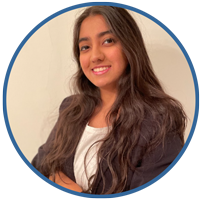
Ms. Pala is the Lab assistant for the VLE. She is a third-year student majoring in Mass Communications at the American University of Sharjah. Her specialty is bonding with students to assist them throughout the exchange.

The Virtual Language Exchange is supported by the Stevens Initiative, which is sponsored by the U.S. Department of State, with funding provided by the U.S. Government, and is administered by the Aspen Institute. The Stevens Initiative is also supported by the Bezos Family Foundation and the governments of Morocco and the United Arab Emirates.
